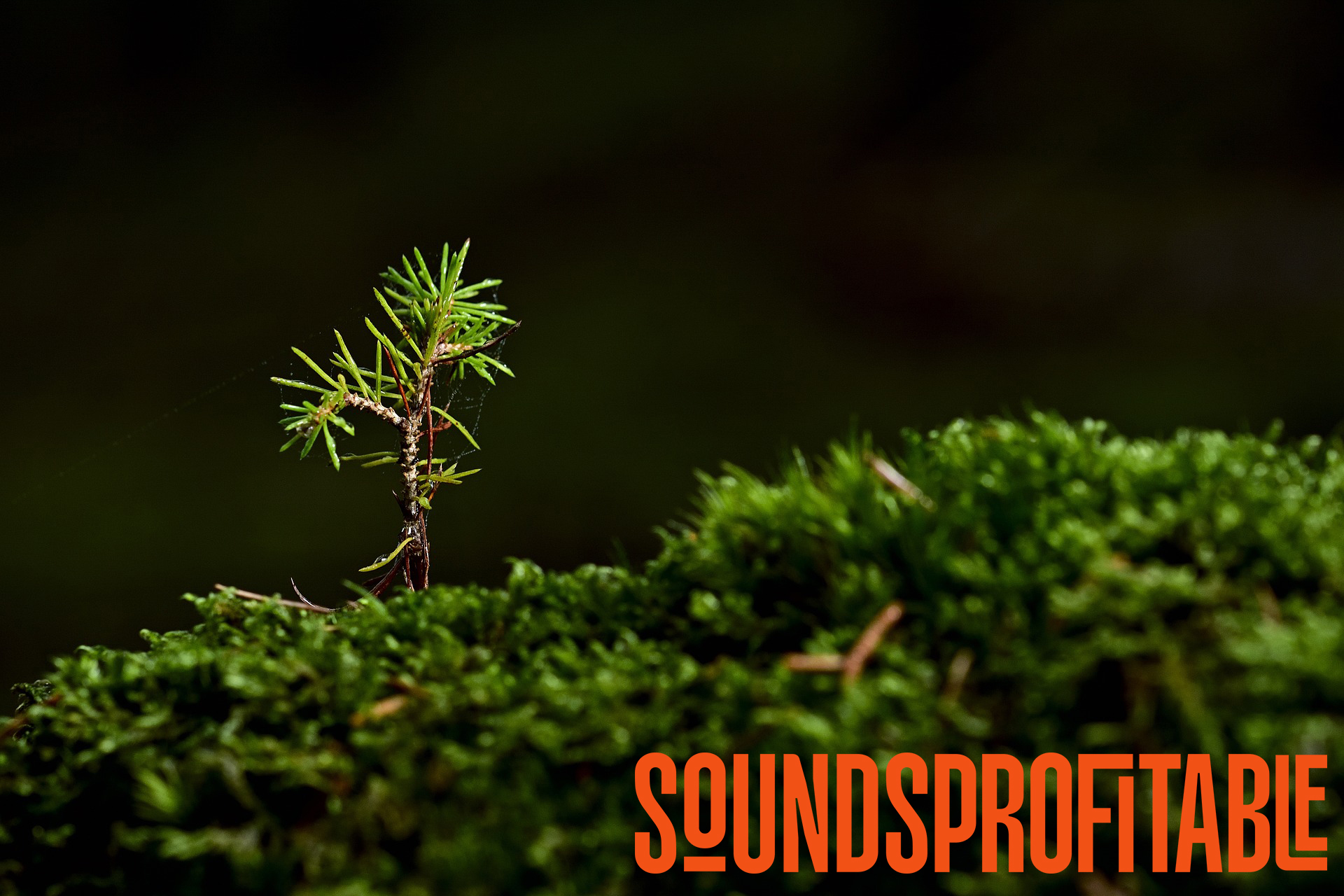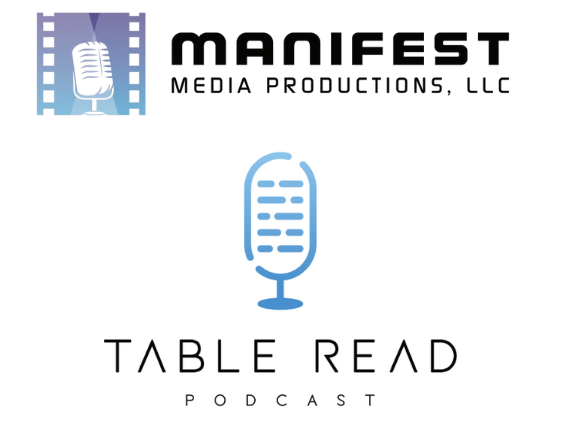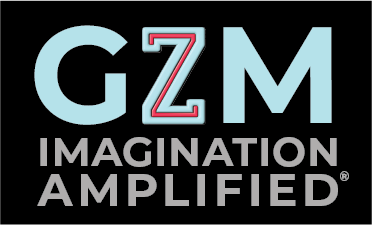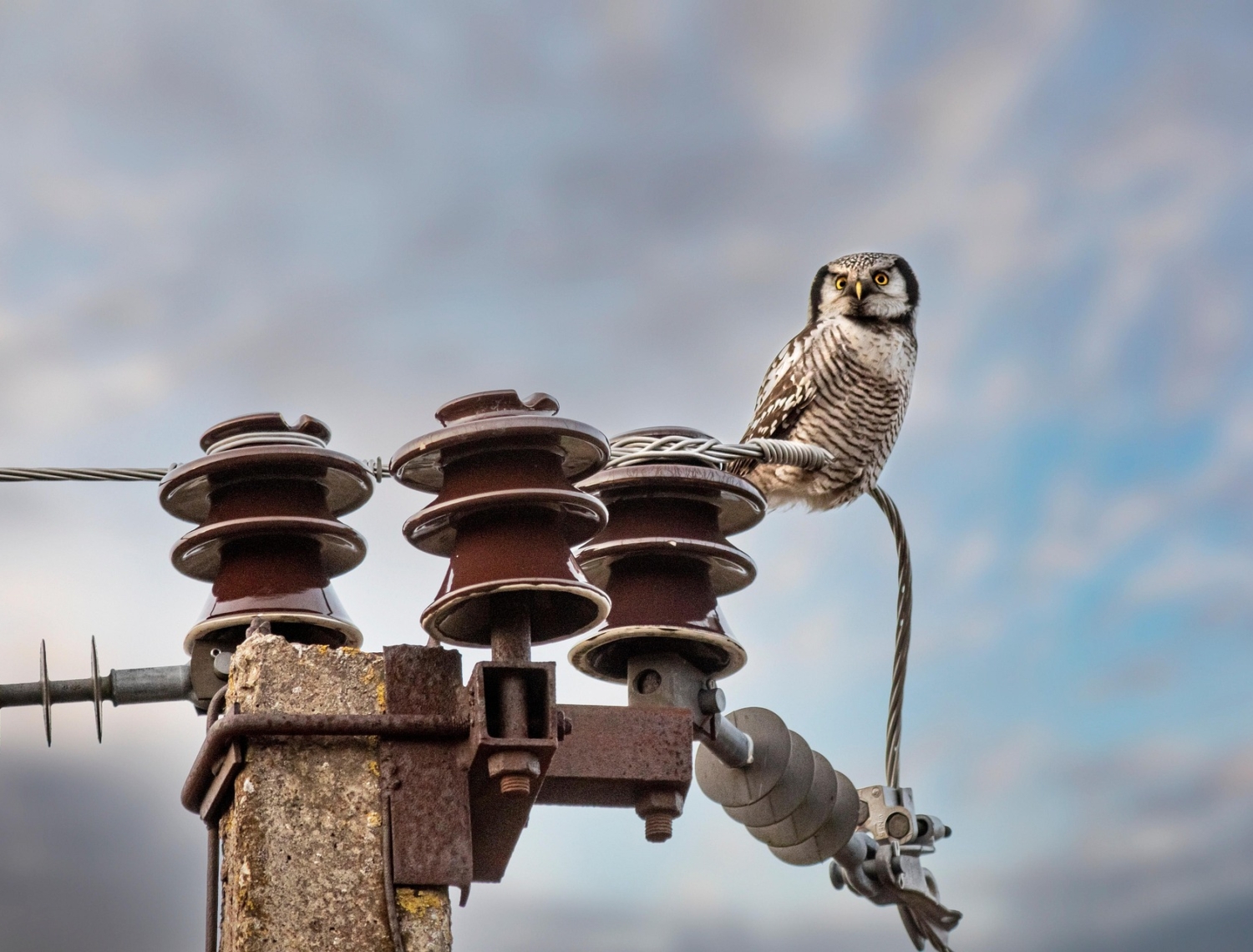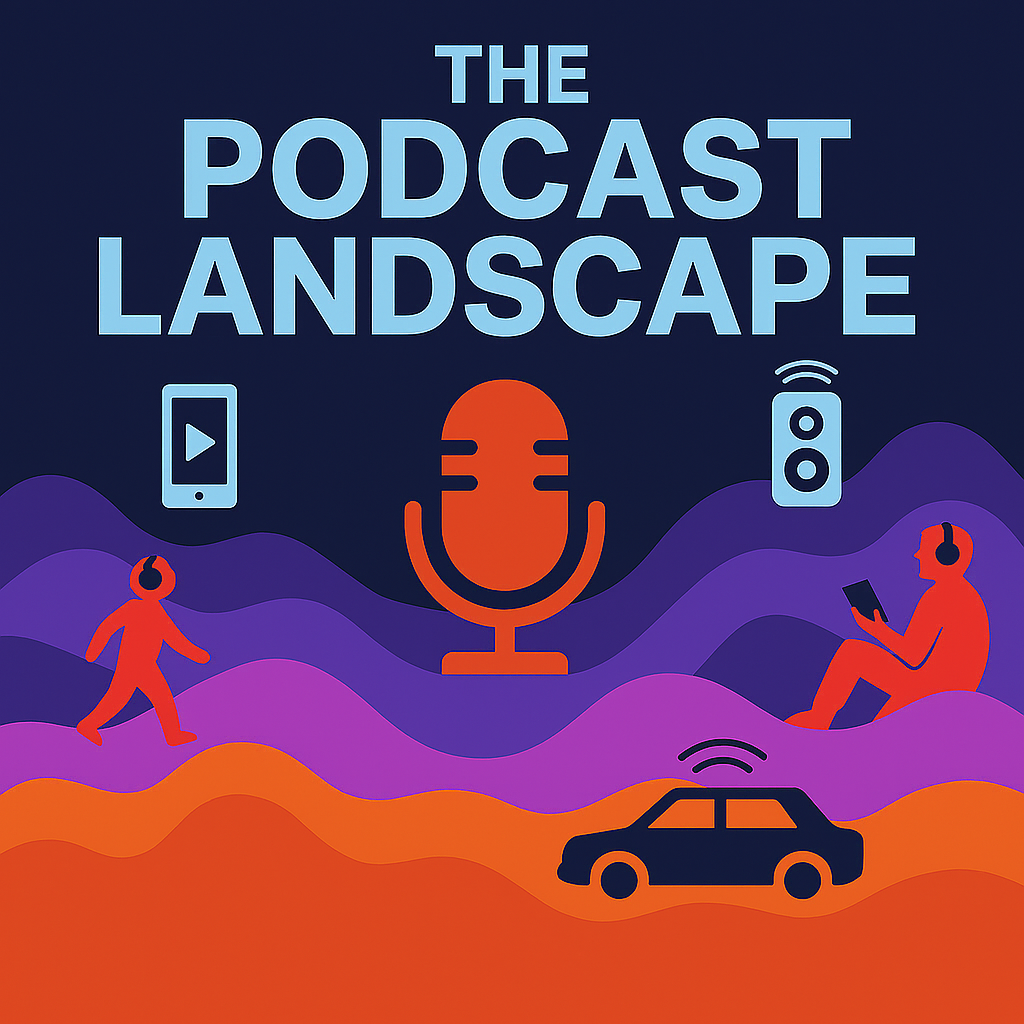This week on the Product Deepdive, Flightpath founder Sean Howard demonstrates how the service can optimize podcast ad operations. With precog that can detect problems before they happen, Flightpath aims to improve yield and accelerate the quote-to-cash pipeline. Tune in now!
This week, we have a special guest post from Newton Schottelkotte! Newt recently graduated from college this year, but do not let their age fool you – they’ve been in podcasting for seven years now, and seven significant years at that. We asked Newt to share some perspective on how podcasting has changed, and how it can continue to grow as a viable career.
It has come to my attention that a not-unimpressive number of my colleagues refer to me in passing as “Young Newt,” which brings to mind that one skit from I Think You Should Leave where a man in a hot dog costume crashes his hot dog car into a store and yells, “We’re all trying to find the guy who did this,” but replace him with my esteemed colleagues wondering how on Earth I could possibly be making them feel so old. To be fair, I am twenty-one years old.
I graduated college at the beginning of this month after going to school in Nashville for audio production and engineering, and looking back at how the podcast industry has grown since I first entered it at fifteen, it amazes me what’s changed in, seemingly, so little time. I created my first podcast, a sci-fi comedy audio drama called Inkwyrm, in my freshman year of high school. After falling in love with the medium, I founded Caldera Studios to continue producing fiction and nonfiction podcasts like Where the Stars Fell and Mini Marconis as a multi-hyphenate creator.
I’ve worked in roles ranging from showrunner to sound designer and composer to voice actor on various other projects, and in 2022 joined the Fable and Folly Network as its Director of Marketing. In addition to creating award-winning shows downloaded hundreds of thousands of times, I was named by this very newsletter as part of their “2022 Women & Gender Non-Conforming Folks to Watch in Podcasting” list, along with some of the coolest people in podcasting I’m so lucky to call my friends and colleagues.
Basically, in the now-seven years I’ve been working professionally in this industry, I’ve done a lot, and seen a lot, too. Podcasting, both fiction and nonfiction, has changed drastically as an industry over the years. So, to celebrate graduating college and never having to do homework again (yippee!), I’m looking back at the past seven years and pondering what’s changed in how we make, market, and make money from podcasting.
HOW IT STARTED
To give you a bit of context, here’s a presentation I made all the way back in 2021 when I was guest-lecturing for a media and culture class at my university. At that time, I placed us in the fourth wave of fiction podcasting’s revitalization, with my introduction to the medium coming at stage one, and my entrance into the industry at stage three with Inkwyrm. Back in those days, nonfiction was mostly the only game in town (as recently as 2021, I was still having to explain what a fiction podcast was to people). Stage four was brought on by the Covid-19 pandemic, which took many high school and college-age people out of school for an extended period, prompting many young fans to ask, “Well, why can’t I do that?”. I like to think that being so public about my young age while producing Inkwyrm contributed to that gumption, which would be immensely arrogant if I didn’t have a folder filled with all the kind, encouraging messages people have sent me, saying that I inspired them to start podcasting at a young age, too.
When Inkwyrm ended in 2020, and I began college that same year, I started diving deeper into the business of my chosen industry, which necessitated familiarizing myself much more with the nonfiction side. Fiction had always been my primary genre, but as I began to pick up more gigs on nonfiction shows, I began to realize that, at least for now, this was where the money was. That research led to a far better understanding of how the business side of podcasting worked, and, as I continued to work with more and more people in the industry, a new perspective on just how the shows I’d loved in middle and high school operated.
When I was promoting Inkwyrm, we didn’t even have a proper website– just a Tumblr blog that was updated far more often than the show Twitter. Fiction podcast fans were (and, by the way, still primarily are) on Tumblr, and targeting them with new episode announcements, memes, behind-the-scenes notes, and reblogging fanart and fan reactions, was the only method by which I grew the show to a, for the time, respectably-sized and passionate fanbase. Nonfiction shows had a presence there, too; a friend suggested I listen to My Brother, My Brother, and Me for years before a Tumblr post featuring a clip of the show finally got me to listen. Podcast Tumblr was like word-of-mouth on steroids– it’s how the McElroy brothers gained their most creative and dedicated fans, how classic fiction shows like Wolf 359 and The Bright Sessions got noticed, and why I still believe whole-heartedly in the power of fandom as the best marketing tool in any show’s arsenal. I would know– Where the Stars Fell reached over half a million downloads earlier this year, and I have never paid for a single advertisement or promotion.
HOW IT’S MADE
Inkwyrm was very much a volunteer, just-for-fun production, however, and I wanted my future projects to be properly professional. Fiction shows were beginning to use crowdfunding as a way to pay their cast and crew fair rates, and what was considered fair was increasing every year. I remember a show whose episodes I fully sound designed and edited for seventy-five dollars a pop, when nowadays, that’s what I charge non-indie productions by the hour. Speaking of, I learned about the PFM (per finished minute) model, what fair rates were for that, and all of the things that go into budgeting out a season of a fiction podcast.
On the nonfiction front, branded shows were rapidly becoming a big-ticket item. Companies believed that, by putting together the right celebrity and topic, you could capture the first’s fanbase and draw in more listeners from those interested in the latter. As a result, marketing became less about explaining what a podcast is and more about finding the target audience for your content, then getting them to hit play. You didn’t have to explain the medium anymore, just convince people that the content you were pitching was worth their time more than the next movie or TV show.
When I joined Fable and Folly as first a producer on the network, then their Director of Marketing, I got a whole new look into the business of marketing shows and running ads on them. Fiction shows are catnip for backfill ads, because listeners are almost always supposed to start from the beginning and listen through (unlike nonfiction shows, which are far less often serialized affairs, and usually encourage listeners to start with the latest episode). They can also get creative in their ad copy in a whole new way– take We Fix Space Junk’s beloved SponsorBot, which ended up winning them an award.
HOW IT’S SEEN- OR, WELL- HEARD
Speaking of awards, podcasts have them now! The Webbys, The Signal Awards, The Ambies, and even Tribecca were all creating specific categories for podcasts, or focusing on them entirely. Shows ranging from comedy to investigative reporting now have the chance to be recognized for what they do in the audio medium that is truly outstanding. The Web Festival circuit has expanded to have enough festivals with fiction podcast-focused awards to create an Audio Fiction World Cup, opening up growth and networking opportunities for thousands of shows. These laurels aren’t just lip service, either– advertisers are looking to the intimate connection podcasts have with their audiences to reach new ears, and a win from one of these places is considered something to throw serious money at.
There were companies springing up entirely dedicated to creating and promoting podcasts, like JAR Audio, Pacific Content, Earwolf, and Wondery (nonfiction), and Realm, QCODE, and Sonoro (fiction). Not to mention a slew of boutique companies from independent creators with one or two in-house shows, discovering they were actually receiving a return on investment.
We’ve gotten a lot better about using that phrase in this industry. Podcasting was seen for a pretty long time as a passion project, something that either two guys who wanted to talk about movies, or an Emerson grad uninterested in the long, long haul to break into TV or film, did for fun. The fact of the matter is that profits legitimize an art form in the larger collective consciousness, and it was truly jarring to see how quickly I stopped having to explain what I did for a living once podcasts started making money. The first time I was in NYC last October and saw ad after ad after ad for various podcasts flash across the Times Square billboards, I was blown away. There are people who set out to make a podcast, not just because they want to farm some IP in order to sell the adaptation rights, but because they have decided that audio is the best medium to tell that story in and where they believe they can make money off of it. When I first tuned in to Song Exploder back in 2016, that seemed unbelievable.
HOW IT’S GOING
On a more personal note, growing up creatively in this medium has profoundly changed the way I make things, and how I put them (and myself) out there. Back in the day (if you think I feel old saying that, just imagine how those aforementioned colleagues are feeling right now), if you wanted to reach out to a bigger show for a promo swap, or get your podcast in a listicle, or pitch a brand to run an ad on your show, you had to do an immense amount of putting yourself out there. I still remember the first time I saw an article about podcasts you should listen to that wasn’t all-nonfiction shows. I vividly remember the first time one of those listed shows was mine.
The appeal of podcasting from the very beginning has been the opportunity for anyone with a microphone and an internet connection to tell their story. I carry that self-starter attitude into everything I do, in every other medium I’ve worked in, and it has consistently shown itself to be one of my greatest assets. So many podcasters I know are self-taught when it comes to the ways of this medium and industry simply because it is so relatively young. There were no classes at my university that taught how to market your show on Tiktok versus Instagram, or what backfill ads even are, or the proper acting technique for an audio drama. I had to seek out this information all on my own, as did many others, and my drive and resilience is all the stronger for it.
I think that appeal to self-starters is partially behind the growth of the industry into what we see today. Over the past seven years, I’ve watched podcasting go from the butt of a joke to a medium that is telling some of the most complex, prescient stories of our time, opening doors to creators that, without the low barrier to publication, may never have gotten to share their stories. While I see that diversity more in the fiction sphere than nonfiction, I still find it incredible how we have been able to create standards of production quality without, for the most part, pushing out underrepresented voices from the space.
Where I still see a lot of room to grow, however, is something that actually speaks to podcasting’s current success: celebrity-based branded shows are great, and can give us fascinating looks into the people we admire, but I don’t see them having as much long-term relevance or cultural oomph as shows like Serial, Song Exploder, or Welcome to Night Vale. Celebrity comes and goes (most of my generation has no idea what a “total Baldwin” is), but finely crafted, well-written/directed, and engaging stories are truly timeless. What I expect to see in the next ten years as podcasting continues to create those touchstone projects of the medium, our own Casablancas and Jurassic Parks, is more of an emphasis on scripted or semi-scripted shows with dedicated narratives and high production value, with celebrity-based branded shows seen as quick bites to capture a mass market without much staying power. Think Succession versus Vanderpump Rules (and for the record, I am an avid watcher of both).
For that to happen, we need to continue to nurture creators who came up in radio and this industry– not just film and TV expats (who do wonderful work, for the record), but people who know specifically how to write, direct, sound design, and produce for the audio medium. I’m not just saying this as a recent college grad– some of the best work I’ve heard was made by people not looking to farm IP in a cheaper-to-produce-in medium or dip into the space for a quick buck, but those who understood the limitations and benefits of crafting a story for audio and took advantage of all you can do with that. If we want to prove podcasting’s worth as not just a medium for making money, but storytelling in a unique and valuable way, we need to invest in the creators who love that medium for what it is and want to see it thrive.
New Partners
Sounds Profitable exists thanks to the continued support of our amazing partners. Monthly consulting, free tickets to our quarterly events, partner-only webinars, and access to our 500+ person slack channel are all benefits of partnering Sounds Profitable.
- The Sound Off Media Company creates and manages podcasts for businesses, entrepreneurs and performers. We help you find and grow your podcast community by creating work flows to scale your audience and monetize your audio.
Want to learn more about partnership? Hit reply or send us an email!

